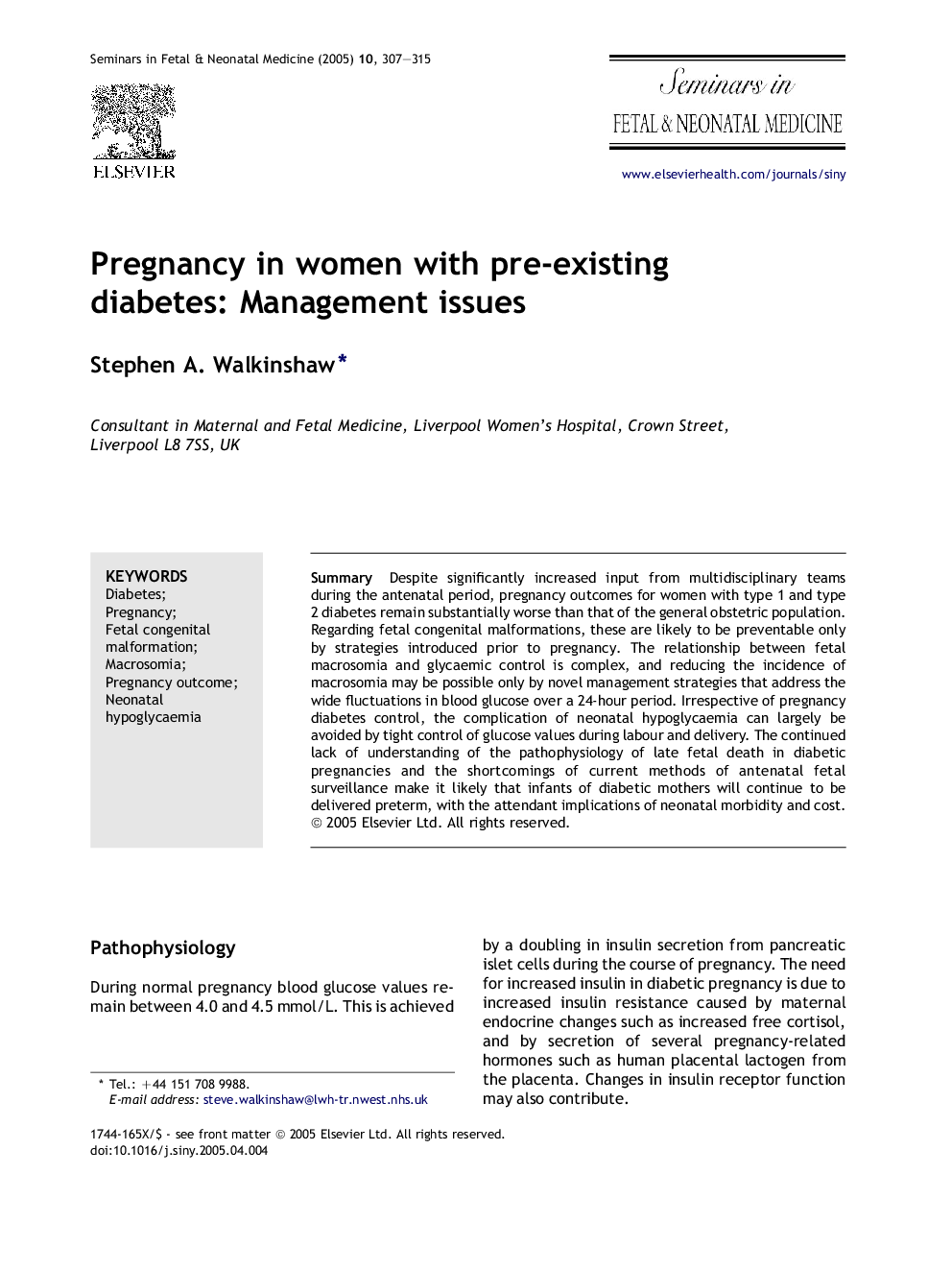| Article ID | Journal | Published Year | Pages | File Type |
|---|---|---|---|---|
| 9336046 | Seminars in Fetal and Neonatal Medicine | 2005 | 9 Pages |
Abstract
Despite significantly increased input from multidisciplinary teams during the antenatal period, pregnancy outcomes for women with type 1 and type 2 diabetes remain substantially worse than that of the general obstetric population. Regarding fetal congenital malformations, these are likely to be preventable only by strategies introduced prior to pregnancy. The relationship between fetal macrosomia and glycaemic control is complex, and reducing the incidence of macrosomia may be possible only by novel management strategies that address the wide fluctuations in blood glucose over a 24-hour period. Irrespective of pregnancy diabetes control, the complication of neonatal hypoglycaemia can largely be avoided by tight control of glucose values during labour and delivery. The continued lack of understanding of the pathophysiology of late fetal death in diabetic pregnancies and the shortcomings of current methods of antenatal fetal surveillance make it likely that infants of diabetic mothers will continue to be delivered preterm, with the attendant implications of neonatal morbidity and cost.
Related Topics
Health Sciences
Medicine and Dentistry
Obstetrics, Gynecology and Women's Health
Authors
Stephen A. Walkinshaw,
